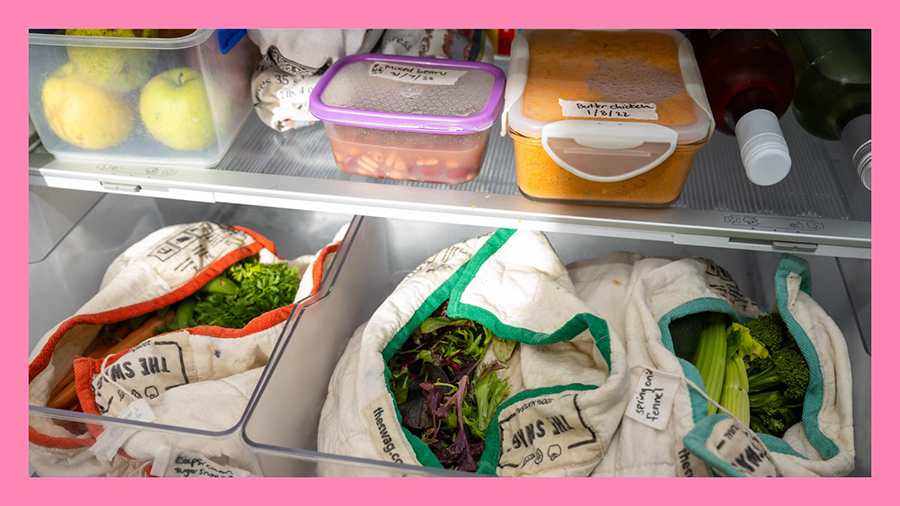
There are easy steps you can take to keep avoidable food waste out of landfill.
Yarra’s food waste challenge
Join our free 12-week online food waste challenge to reduce avoidable food waste at home and save money.
By signing up, you will receive fortnightly emails with our top tips for reducing food waste, and a challenge which is both achievable and fun.
Sign up to Yarra’s food waste challenge
Ways to reduce your food waste
Planning
Meal planning reduces the risk of over-purchasing food, so you spend and throw out less.
Here are some meal planning tips to help you get started:

There are easy steps you can take to keep avoidable food waste out of landfill.
Yarra’s food waste challenge
Join our free 12-week online food waste challenge to reduce avoidable food waste at home and save money.
By signing up, you will receive fortnightly emails with our top tips for reducing food waste, and a challenge which is both achievable and fun.
Sign up to Yarra’s food waste challenge
Ways to reduce your food waste
Planning
Meal planning reduces the risk of over-purchasing food, so you spend and throw out less.
Here are some meal planning tips to help you get started:
Shopping
Shopping with a list (and sticking to it) makes you less likely to impulse purchase food you don’t need which ends up wasted at the end of the week. Wasted food is wasted money!
Here are some tips to help you next time you're out shopping:
Shopping
Shopping with a list (and sticking to it) makes you less likely to impulse purchase food you don’t need which ends up wasted at the end of the week. Wasted food is wasted money!
Here are some tips to help you next time you're out shopping:
Perfecting portion sizes
Cooking too much is one of the main reasons we waste food. Cooking the right amount of food means everyone has enough to eat without the waste.
What’s the perfect portion?
- One palm-size of raw meat is usually about 85g, which is one serve.
- ½ cup of raw rice usually makes enough for 2 people.
- The hole in the pasta spoon fits about one serving of dried spaghetti.
Read some of our tips to get portion sizes right:
Perfecting portion sizes
Cooking too much is one of the main reasons we waste food. Cooking the right amount of food means everyone has enough to eat without the waste.
What’s the perfect portion?
- One palm-size of raw meat is usually about 85g, which is one serve.
- ½ cup of raw rice usually makes enough for 2 people.
- The hole in the pasta spoon fits about one serving of dried spaghetti.
Read some of our tips to get portion sizes right:
Cooking
According to Sustainability Victoria, the wasted foods that have the greatest impact are apples, bread, cheese, meat, milk and tomatoes.
Don't let great taste go to waste! Here’s some ways you can save your food:
Cooking
According to Sustainability Victoria, the wasted foods that have the greatest impact are apples, bread, cheese, meat, milk and tomatoes.
Don't let great taste go to waste! Here’s some ways you can save your food:
Using your leftovers
With a bit of planning, you can save yourself time and money and reduce your environmental footprint by enjoying leftover ingredients and meals.
Make the most of your leftovers with these tips:
Using your leftovers
With a bit of planning, you can save yourself time and money and reduce your environmental footprint by enjoying leftover ingredients and meals.
Make the most of your leftovers with these tips:
Storing
How we store our food can make a big difference to how long it will last.
Here are some storage tips to help your food last longer:
Storing
How we store our food can make a big difference to how long it will last.
Here are some storage tips to help your food last longer:
Composting and worm farming
Composting and worm farming can transform your food scraps into nourishment for your garden or pot plants.
Read our online guide to composting and worm farming to learn more, including which one is best for your household.
Growing your own food
Have you ever bought a bunch of herbs wrapped in plastic, used a small amount of it and then discovered later in the week that the rest has gone off?
Growing your own herbs, fruits and vegetables is a great way to save money and reduce food and packaging waste. It also reduces ‘food miles’ and hence carbon emissions.
We run workshops on a variety of topics including small space gardening, beekeeping, composting and keeping chickens.
Visit our Growing food at home page to learn more.
Composting and worm farming
Composting and worm farming can transform your food scraps into nourishment for your garden or pot plants.
Read our online guide to composting and worm farming to learn more, including which one is best for your household.
Growing your own food
Have you ever bought a bunch of herbs wrapped in plastic, used a small amount of it and then discovered later in the week that the rest has gone off?
Growing your own herbs, fruits and vegetables is a great way to save money and reduce food and packaging waste. It also reduces ‘food miles’ and hence carbon emissions.
We run workshops on a variety of topics including small space gardening, beekeeping, composting and keeping chickens.
Visit our Growing food at home page to learn more.

